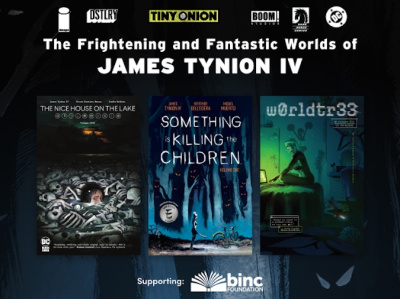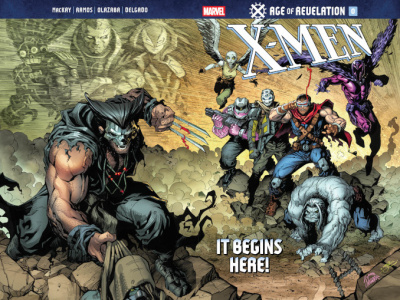The cover of the tabloid-size Book Review section of Sunday's New York Times featured a faux Superman ripping open his shirt to expose the traditional 'S,' which became the first letter in the 'Summer Reading' issue of the popular literary supplement. The comic book theme continued inside in a two-page article on graphic novels written by John Hodgman (author of the Eggers-esque The Areas of My Expertise and frequent guest on The Daily Show), though superhero comics were not the subject of his ruminations.
Hodgman's nuanced essay includes the confession that 'many of the fine-art comics that cross my desk these days are kind of boring,' and that 'there is a creeping sameness to many of these comics: black-and-white, semi- or wholly biographical sketches of drifting daily life and its quiet epiphanies.' But this is definitely not a put-down piece -- Hodgman is well aware of the difficulties of (and meager rewards for) the creation of graphic novels and he is a real champion of the medium.
Hodgman concentrates on three recent graphic novels, Carol Tyler's Late Bloomer (Fantagraphics $28.95), Jessica Abel's La Perdida (Pantheon $19.95) and Kevin Huizenga's Ganges No. 1 (Fantagraphics $7.95), and he carefully illuminates how these three works manage to overcome the perils of sameness that afflict the vast majority of autobiographical comics. While Tyler's Late Bloomer exploits a botanical theme to demonstrate the tensions inherent in conflicts between family and career in a delightfully visual way, Abel's La Perdida manages to slip the bounds of the 'quotidian travelogue' and venture into 'thrilling adventure territory,' while providing a fully rounded portrait of its protagonist, who is a creation of the author and not just an autobiographical reflection.
Hodgman saves his highest praise for Kevin Huizenga's Ganges No. 1, which examines the chilling terror of everyday life with extreme precision by utilizing the darkly poetic powers of the comic book medium. Commenting on a scene in which the low key hero of Ganges lies in bed and watches his wife sleeping, thinking about all the millions of people throughout the ages who have participated in a similar nocturnal vigil, Hodgman notes: 'I have never seen any film or read any prose that gets at that frozen moment when we suddenly feel our mortality, when God is seen or denied, as effectively as a comic panel...Huizenga reminds us in a way many novelists cannot, never mind lesser comic writers, that as long as we are mortal, the mundane shall always be a life-and-death struggle.'








